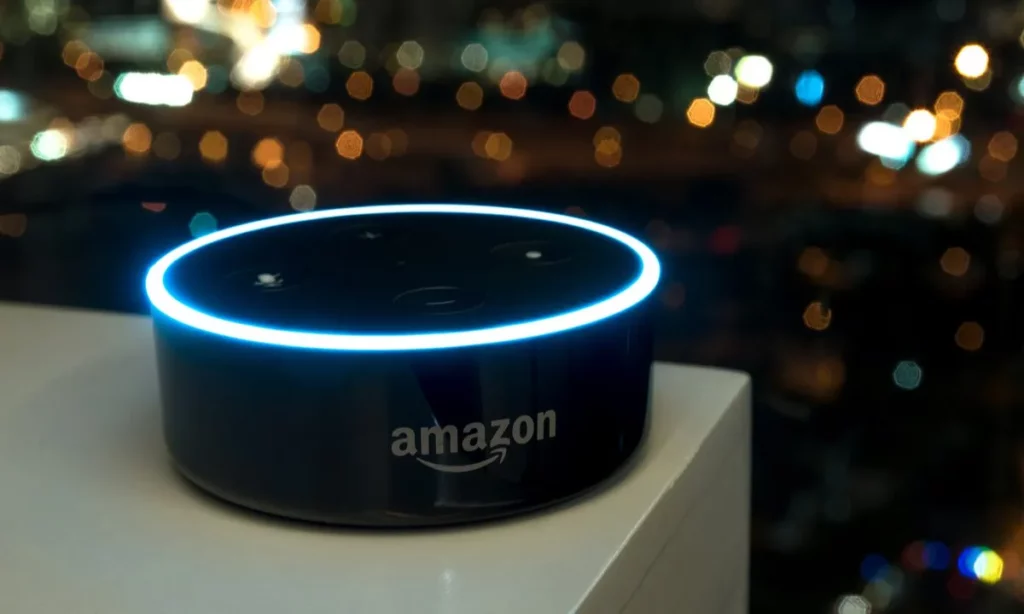Amazon is going through the biggest layoffs in the company’s history for quite some time now, with a plan to eliminate several jobs. One of the hardest hit areas is the Amazon Alexa voice assistant unit, which is apparently not meeting the vision of the e-commerce giant. A Business Insider report details “the swift downfall of the voice assistant and Amazon’s larger hardware division.” The company is plowing more resources into artificial intelligence.
In a note to the employees, Daniel Rausch, vice president of Amazon’s Alexa and Fire TV, wrote that the company is eliminating certain roles because it is ditching some initiatives. “As we continue to invent, we’re shifting some of our efforts to better align with our business priorities, and what we know matters most to customers — which includes maximizing our resources and efforts focused on generative AI,” Rausch wrote.
Seattle-based Amazon is in fierce competition with other tech companies that are rushing to capitalize on the booming generative AI craze. The company has been implementing a host of AI initiatives in the past few months, from infusing the technology into customer reviews to providing services that allow developers to build their own AI tools on its AWS cloud infrastructure.
Also Read: Amazon Partners With Meta To Offer Seamless Shopping Experience
Even though Amazon unveiled an update to Alexa that infuses it with more generative AI features in September, the headlines have been quite dire of late for the voice assistant unit. The job cuts announced on November 17, 2023, will impact employees in the U.S., Canada, and India. The recent layoffs in Amazon’s gaming, music, and human resource teams also add to the 27,000 employees the company laid off last year and earlier this year. Amazon’s Alexa unit was also impacted by those cuts.
Alexa has been around for 10 years and has been a trailblazing voice assistant that was copied quite a bit by Google and Apple. But it never managed to create an ongoing revenue stream, which means Alexa doesn’t really make any money. The Alexa division is part of the “Worldwide Digital” group along with Amazon Prime video, and Business Insider says that division lost $3 billion in just the first quarter of 2022, with “the vast majority” of the losses blamed on Alexa. That is apparently double the losses of any other division, and the report says the hardware team is on pace to lose $10 billion this year.

A Division In Crisis
The BI report spoke with a couple of current and former employees on the company’s hardware team, who described the whole situation as “a division in crisis.” Almost every plan to monetize Alexa has failed, with one former employee calling Alexa “a colossal failure of imagination,” and “a wasted opportunity.” This month’s layoffs are the end result of years of trying to turn things around. The voice assistant that can be used to set timers, ask search queries, play music, or as a home automation hub was given a huge runway at the company.
Back when it was conceptualised, it was reportedly the “pet project” of former CEO Jeff Bezos. An all-hands crisis meeting took place in 2019 to try to turn the monetization problem around, but that was fruitless. By late 2019, Alexa saw a hiring freeze, and Bezos started to lose interest in the project around 2020. Now, Amazon has an entirely new CEO, Andy Jassy, who apparently isn’t as interested in protecting Alexa. It seems like Amazon is finally tired of burning through all that cash.
The Downfall
The BI report says that while Alexa’s Echo line is among the “best-selling items on Amazon, most of the devices sold at cost.” One internal document described the business model by saying, “We want to make money when people use our devices, not when they buy our devices.” But that plan never really materialized. The hope was that people would buy things on Amazon via their voice but not many people want to trust an AI with spending their money or buying an item without seeing a picture or reading reviews.
The report says that by the fourth year of the Alexa experiment, “Alexa was getting a billion interactions a week, but most of those conversations were trivial commands to play music or ask about the weather.” Those questions aren’t monetizable. Amazon also tried to partner with companies for Alexa skills, so a voice command could buy a Domino’s pizza or call an Uber, and Amazon could get a kickback. But that didn’t fly either.
Last year, in a public note to employees, Jassy said the company still has “conviction in pursuing” Alexa, but that’s after making huge cuts to the Alexa team. One employee said that currently, “There’s no clear directive for devices” in the future and that since the hardware isn’t profitable, there’s no clear incentive to keep iterating on popular products. In the US voice-assistant wars, Alexa is now in third place with Google Assistant at 81.5 million users, Apple’s Siri at 77.6 million, and Alexa at 71.6 million.
What Does That Mean For Alexa?
Reuters reported in September that morale in the devices division had suffered over concerns about what some viewed as a weak product pipeline. In particular, people familiar with the matter pointed to the Alexa voice assistant, now nearly a decade old, as having failed to keep pace in the age of generative artificial intelligence. “To suggest that a few anecdotes paint a picture of reality for an organization as large and diverse as Devices and Services is inaccurate,” said Amazon and that it stood by its products.
Instead of becoming an indispensable interface for digital life, Alexa devices have stayed pretty limited in their use thanks to the weaknesses of digital assistant technology. Using your voice alone to navigate digital life has been a tougher problem to solve than any tech company expected. Google Home and Apple’s Siri assistant don’t have huge penetration here either. On the other hand, Amazon stock is up after announcing several hundred roles were being eliminated in their department focused on the Alexa voice assistant. This is just one of the wild effects that big tech has had on the market.


